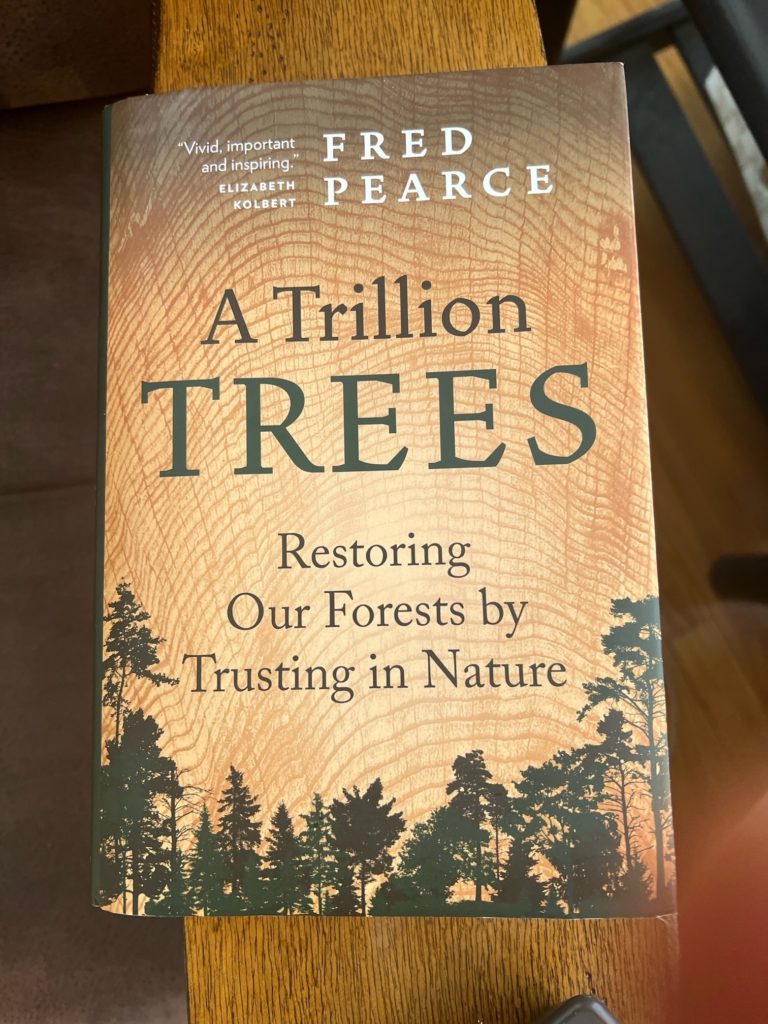Book review of “A Trillion Trees – Restoring Our Forests by Trusting in Nature” by Fred Pearce
 Written by Richard Donovan
Written by Richard Donovan
Fred is an accomplished journalist, book writer and video producer from the UK, with decades of experience examining environment and forest issues in tropical, temperate, and boreal forests. This 2021 book does a fantastic job of examining forest and forestry issues globally, providing different perspectives that are perhaps new to some as well. Everything from restoration (notable as we are in the UN-sponsored “Restoration Decade” now), contrary observations on the role of slash and burn agriculturalists in deforestation, and helpful reflections on the role of Indigenous peoples as forest stewards, is considered. His wording is nuanced. My “take home message” is that Fred understands the complexity of forest solutions – none are “perfect” – in the real world. He has spent quality time with innumerable forest/forestry lovers, activists and professionals and uses that experience to tell good stories. I was surprised how quickly time passed when reading the book. The stories include astute reflections on the complicated, perplexing, sometimes contradictory or frustrating roles of government, retailers, retail brands and the forest products industry, even pundits and NGOs, on deforestation and sustainability. He visits many places around the world, covering the Amazon, the unique Chaco ecosystem in Paraguay, small-scale chainsaw/pitsaw harvesting versus industrial scale degradation in Ghana, the Kenyan “water towers” dynamic, and boreal forests of Canada, among others.
Per the subtitle of the book, he argues to avoid the myopia of just focusing on tree planting as a solution to deforestation, putting a calculated bet on “assisted natural regeneration” as a more cost-effective reforestation solution in many locations. For example, I live in Vermont, where we were down to around 15% forest cover just over 100 years ago. Now we have 78% largely native species forest – virtually all of it coming back from what many think (even today) were previously “useless” fragments of degraded forest in steep areas and beyond. Fred communicates that one person’s “degraded forest” is another’s “hope for the future” for regenerating natural forest ecosystems globally. At the same time, he points to how resilient forest ecosystems (and grasslands) are – far more so than too often painted – if we would just give them a chance. But this book covers much more than restoration. It is a 275+ page-turner on international forest issues social, political, environmental, even technical at times. It also provides useful recommendations on further readings. For this widely experienced reviewer, Fred’s book illuminates, which is a valuable virtue during these “climate-challenged” times. It also may be particularly valuable for those seeking a better understanding of trees, forests, deforestation, and climate change in a global context. Good stuff!
